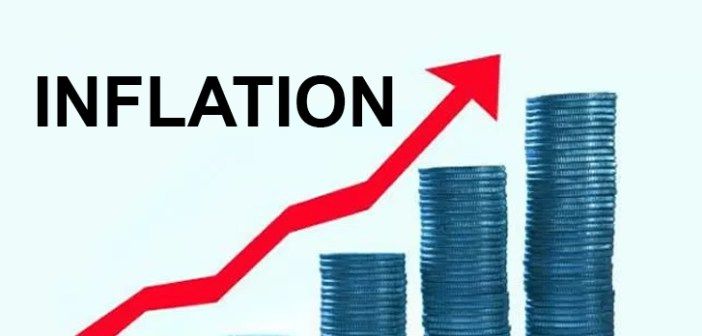Nigerian Inflation Quickens for the First Time in Three Months
Consumer prices rose 32.7% from 32.2% in August, the National Bureau of Statistics said in a statement published on its website on Tuesday. The median estimate of nine economists in a Bloomberg survey was 32.4%.
- Advertisement -
Nigeria’s annual inflation rate climbed for the first time in three months in September, stoked by a spike in gasoline prices and severe floods in food-producing areas.
The EU will loan Ukraine €35 billion, repaid through interest on frozen Russian assets. This novel approach aims to fund Ukraine’s urgent infrastructure and defense Focus on Profit Updates from Major Banks, Taiwan Semiconductor, Netflix, and More; Market Attention on Columbus Day, Economic Data, Retail Sales, and Fedspeak during Ongoing Earnings Season
- Advertisement -
Consumer prices rose 32.7% from 32.2% in August, the National Bureau of Statistics said in a statement published on its website on Tuesday. The median estimate of nine economists in a Bloomberg survey was 32.4%.
- Advertisement -
Food inflation quickened to 37.8% in September from 37.5% a month earlier. Core price growth, which excludes agricultural produce and energy, slowed to 27.4% from 27.6%.
- Advertisement -
The Central Bank of Nigeria lifted its benchmark interest rate by 50 basis points last month to 27.25%, in a preemptive move to tame the impact of the price pressures on inflation and may hike again when the monetary policy committee meets Nov. 25-26.
Governor Olayemi Cardoso said at last month’s meeting that “efforts must be sustained” to achieve a positive inflation-adjusted interest rate to attract investment into the economy which would help support the naira.
Still, Bismarck Rewane, chief executive officer of consultancy Financial Derivatives Co., warned ahead of the data release that while “the upward reversal in the inflation trend will be a major consideration at the MPC meeting in November,” it may opt to maintain the status quo. “This is to prevent the economy from overheating and a possible recession.”
Source:norvanreports.com
- Advertisement -


